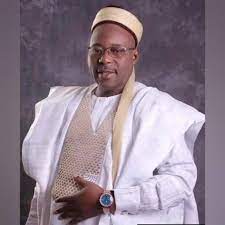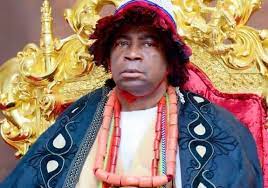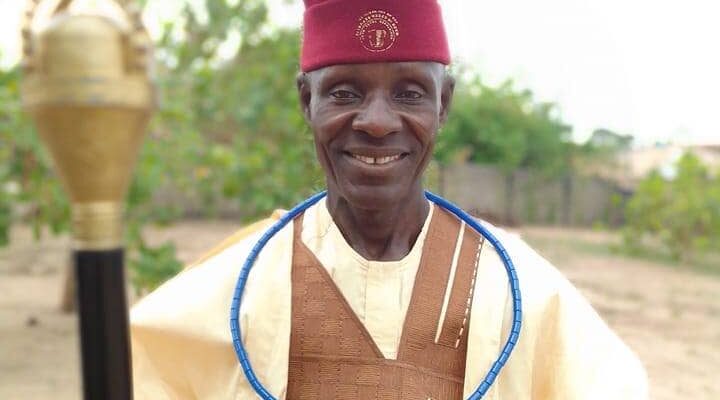Boston as arbiter of Igala history.
By Abdul Aji
The book, The IGALA KINGDOM written by J S Boston, an English man in 1965 has been a saving grace for the Igala people.
A lot of disputes bothering on customary practices and chieftaincy issues have been resolved by relying on it.
There is no traditional practice of the Igala people that he did not touch, especially when it comes to kingship. Without the book, a lot of Igala festivity that were banned in 1956 would have been forgotten today.
The book was like the main authority during the 2018 Ocho festival which was stopped since 1956.
One of such issues that the book has served as eye opener is false claims by Onu-Oko Ubi-Iga and Akwumabi discendants at Ane-Oba, the space of villages from Ola-Ofu Ochadamu through Aloji, Ojodu to Ola Idebu stream at Adumu. Ojuwo Omachi, Ojuwo Aj’aji and the surrounding villages are also part of Ane-Oba.
Reading from page 182 to 183 of the book, J. S. Boston said these on Ane Oba:
“……royal hamlets have come to dominate the partnership with local clans to such an extent that they have supplanted the land chief administratively, judicially and even ritually.
The influence of these royal settlements in district affairs is in proportion to their influence at court, and where this is exceptionally great the balance of power in the districts tends to be tipped in favour of the royal settlers.
In the Oba district (Ane Oba) adjourning the Ojo area, the royal hamlet of Iga (Iga Ojo) has gained so much influence at the expense of the traditional district centre, the village of Oba, that the latter has been virtually abandoned, and Iga has become the new centre of political and administrative control.
This change is fully apparent in the fact that the modern office of Gago, which is to some extent a modern continuation of the land chief’s office, has become hereditary in the royal section of the district community, so that administrative control has been transferred from the land owing group to the royal group. The founder of this royal hamlet, Amonojio (Ameh Onojo) was exceptional in being related to the ruling house on both sides, paternally to the Itodo Aduga branch of the Ajaku lineage, and maternally to the Ocholi lineage. Amonojio retained the post of royal councilor for three reigns and was given titles by the Atas Aku Odiba, Okoliko and Amocheje successively.

In the face of powerful competition from the hamlet led by Amonojio, the landowing clan in this district seems to have fragmented and become widely dispersed through the migration of its members.
The remaining members of the clan placed themselves under patronage of the royal group, and came increasingly under their dominance until they finally abandoned their traditional clan centre and moved to Iga, where they now occupy a subordinate hamlet.
Their duties at present are purely ritual in character, and administrative duties connected with the land, including collection of tribute, have been taken over by the leaders of the royal group.”
With above facts on ground, some distance great grandchildren of the dispersed Oba land started sorting court actions against the royal group of Ameh Onojo at Iga Ojo.
In 1973, in case number 143/73 at Idah Divisional Area Court Grade I, presided by Mr. Matthew A. Edogbanya, one Edibo Ojata who was given the chieftaincy title of Onogobida of Ane Oba wanted to claim the Oba land from the descendants of Ameh Onojo at Igah Ojo. He sued one Idajili Musa of Iga Ojo along with Usman Achimugwu, the Gago of Iga Ojo.
However, Edibo Ojata’s case was dismissed. This is because he earlier took the same persons to court, he lost. He went on appeal at Upper Area Court Lokoja and he lost. He did not appeal to High court, instead he instituted a fresh case over a case that has already been decided, of which he did not appeal.
The Idah Divisional Area Court Grade I ruling reads:
“This is a case of release of Oba land and its economic trees instituted against the defendant (Idajili Musa) by the plaintiff (Edibo Ojata) and having hear the plaintiff and the defendant with their witnesses, we are satisfied this case had once been tried by competent courts of which judgement was given in favour of the defendant who was then the plaintiff.
This case first came before this court in our court case number 166/7/ and judgement was entered in favour of the defendant (idajili Musa). The plaintiff, then the defendant (Edibo Ojata) appealed to the Upper Area Court Lokoja, where the decision of the lower court was upheld in the Upper Area Court case number 491/72 of 10/4/72.
What plaintiff (edibo Ojata) should have done was to appeal to the High Court Lokoja, if he was not satisfied with the decision of the Upper Area Court Lokoja but not to bring a fresh action against the defendant (Idajili Musa) before this court on the same cause of action which had once been decided.
In Exhibit “B” it is proved judgement was entered for defendant then respondent in the Upper Area Court Lokoja.
In the Ata’s (Ali Obaje) presented evidence, he said that until the parties are able to show to him any difference in the previous facts available before him and upon which he based his judgement in awarding the beaded title of Onogobida to Edibo son of Ojata, he shall not make any change and he still maintain that Edibo is the beaded Onogobida.
The fact in issue before this court is the dispute over oba land and not chieftaincy over bead of Onogobida of which Ata igala’s evidence, as in Exhibit “A” at page 5. Judgement was entered in favour of the defendant (Idajili Musa) by the Upper Area Court Lokoja. In view of the fact given above, the plaintiff’s (Edibo Ojata) claim is dismissed with loss of the suit fees.”
Edibo Ojata was given a right of appeal to the Upper Area Court within 30 days, on payment of N4.20 appeals fees to the registrar of that court, but he did not appeal till this day.
In recent time, one Marvins Onalo Edibo, the current Onogobida at Aloji (acclaimed Ane Oba chief), launched a fresh claim to Ane Oba against the court ruling that did not favour his grandfather as mentioned above. In a petition by the current Iga-Ojo Chief, the Ohiomogbolo Ata Igala at Iga-Ojo, Chief Muhammed Nuhu Achem, wrote to the Eje and Chairman Ofu Local Government Traditional Council, Chief Akwu Obaje, to stop laying claim to Iga-Ojo and the entire Ane Oba.
The Ohiomogbolo in the letter referred the Eje to previous court judgements on the Ane Oba issue.
During the era of Opaluwa Oguche Akpa as Ata Igala, there was dispute between Ohimogbo Gande and Ohioga Ata over Edugbe II (Onubele) and Ukpolo lands and ponds in Ibaji area.
Opaluwa Oguche Akpa ruled in a judgement dated 12th September 1933 that all lands in Igala Kingdom belongs to Ata Igala.
It means if a title holder on any land takes tributes to the Ata, that does not make such title holder, like Onogobida or Ohimogba Gande, to become owner of the land.
The dispute between acclaimed land-owning groups and royal family groups has lingered till this day, despite the aforementioned historical facts, Ata Igala’s ruling and court ruling. Even among Achadu Oko Ata dynasty, persons designated to carry out ritual purification of the land wants to become the owners of the land.




